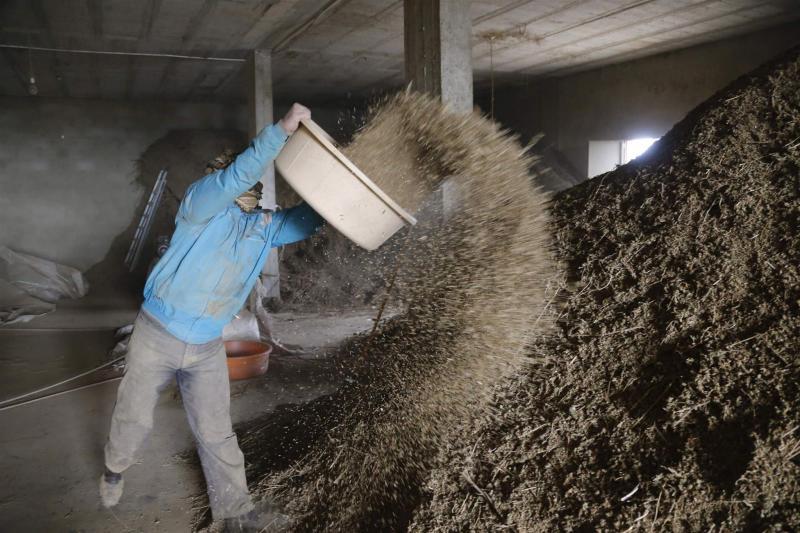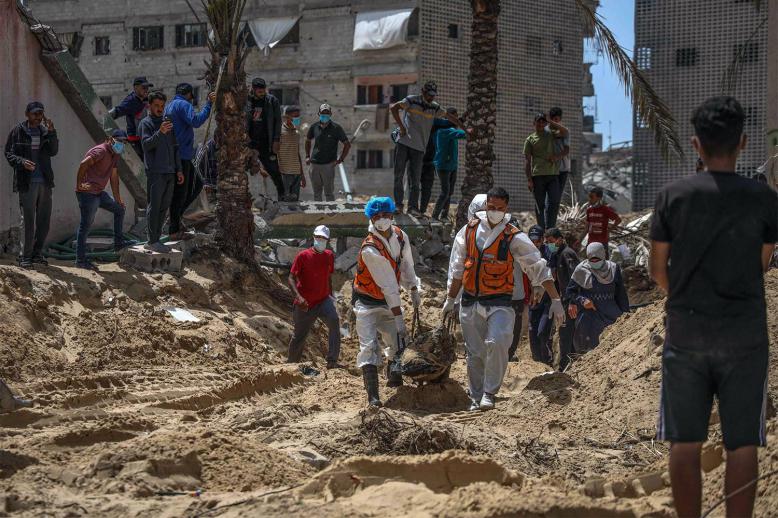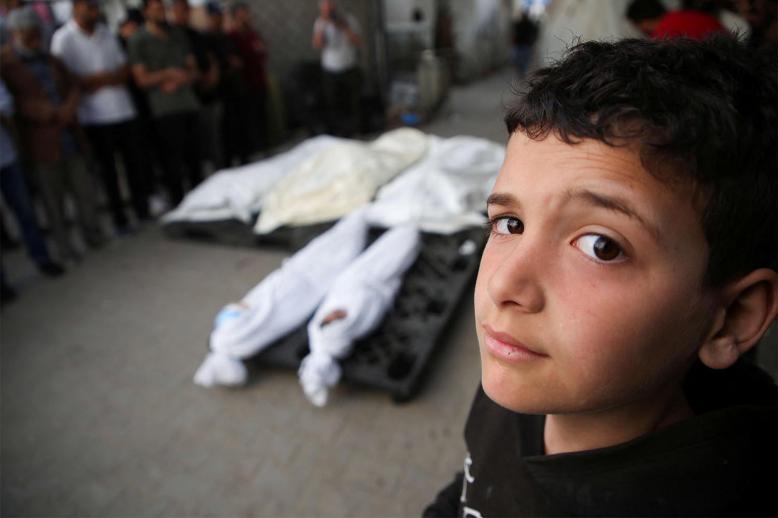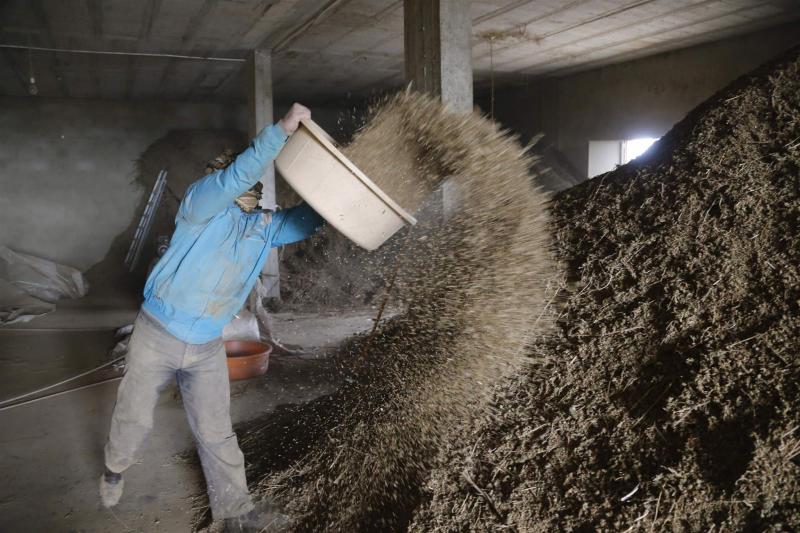Drug smuggling, tribal violence produce rich crop for Hezbollah recruiters
BEKAA VALLEY - The Lebanese Army has begun yet another security operation in the northern Bekaa Valley to end the endemic violence and criminality in the fiercely tribal region that has been neglected for decades by the Lebanese government.
Lebanese troops fanned out June 26, across Baalbek, the largest town in the northern Bekaa, and took stricter measures at checkpoints on the main roads in the area. But the crackdown is likely to have little effect in an area that has become synonymous with criminal activities such as hashish cultivation, car theft and currency counterfeiting underpinned by strict adherence to traditional tribal codes, which often leads to blood feuds, shoot-outs and eye-for-an-eye retribution.
Part of the problem is that the area remains neglected and underdeveloped even though it is one of the most fertile regions in the Levant and was once known as the “Breadbasket of the Roman Empire.”
Hashish is widely cultivated in the northern Bekaa, although it is the dealers, rather than the farmers, who make substantial profits manifested in ostentatious mansions dotting hills around the valley in sharp contrast to the hard-scrabble dwellings in the villages.
Turn off the main roads in the northern Bekaa and one soon stumbles across green fields of spiky saw-toothed cannabis sativa plants. Its cultivation is illegal and each year the government tried to eradicate the crop ahead of the harvest, which can lead to gun battles between Lebanese police and farmers determined to protect their livelihoods.
During the 1980s, at the height of Lebanon’s civil war, the Bekaa was awash with hashish and opium plants. In the early 1990s, the Lebanese government and the UN Development Programme (UNDP) began an initiative to replace hashish with legitimate crops. The UNDP estimated that some $300 million were required to develop the Bekaa but the funds never materialised. The initiative was dropped and hashish continues to be grown.
The northern Bekaa is also known as the “Barracks of Hezbollah,” the Iran-backed militia that emerged from the hill villages of the eastern Bekaa in 1982. The hills flanking the valley are riddled with training camps and guarded military facilities. The Shia organisation remains a key source of employment for the region’s young people because there are scant alternative means of generating an income.
That reliance on Hezbollah has led to accusations that the powerful organisation deliberately keeps the Bekaa impoverished to foster dependency on the party. During the height of the conflict in neighbouring Syria, recruits were paid $600 a month and given a month of basic training in the Bekaa before being sent to Syria’s bloody battlefields.
“Do you think we would risk our lives for $600 a month if we had another choice?” asks a member of the Jaafar clan, one of the largest and most powerful in the Bekaa. “If we had alternative options for work in the Bekaa, you would see people leave Hezbollah in the hundreds.”
Certainly, Hezbollah retains the support of a substantial number of Shia residents in the Bekaa but it has had to work hard to placate and cajole the tribes for whom loyalty to the clan is paramount and far above allegiance to a political party or the state. The challenges Hezbollah faces are compounded by a long-standing grievance that the party’s leadership is dominated by southern Lebanese while the foot soldiers are mainly drawn from the Bekaa.
In the border village of Qasr in the northern tip of the Bekaa Valley, the frontier with Syria is essentially non-existent. Passing over a 1.2-metre concrete bridge spanning an irrigation ditch takes one from Lebanon into Syria but there are no signs, flags or security personnel to indicate passage from one country to another.
The ease of cross-border access into Syria has proved useful for Shia tribesmen who are wanted by the Lebanese authorities. Some have found an additional layer of protection by offering to fight on behalf of the regime of Syrian President Bashar Assad.
With Russian training and equipment and a $200 a month salary. Some 300 Shia tribesmen fought alongside Russian special forces troops against Islamic State militants in theatres as far removed from Lebanon as Palmyra and Deir Ez-Zor, earning the gratitude and respect of Moscow and Damascus.
A group of Jaafars in June sipped sodas and smoked water pipes at a small cafe about a kilometre inside Syria set beside a narrow stream and shaded by poplar trees swaying in the stiff, hot breeze. All the men were armed, some with AK-47 rifles, others with automatic pistols stuffed into trouser waistbands. Most of them were wanted for hashish cultivation and clashing with Lebanese troops.
They scoffed at the latest crackdown by the Lebanese Army, noting that news of the operation had been released several days in advance allowing wanted men the opportunity to leave their homes and go into hiding.
Uppermost in their minds, though, was a deadly feud that has erupted between members of the Jaafar clan and the rival Jamal family. The origins of the dispute were murky but the Jaafars said that one of their relatives was shot in the back of the head by a Jamal, an incident that triggered two days of fighting.
“Here, look at this,” said the leader of the group of men, who goes by “Haj.” A video on his phone showed a Jaafar firing a belt-fed machine gun into the village of Assafouriyah where the Jamals live. Another video through a night-vision camera showed burning buildings in the village.
“The Jamals have all run away from their village,” Haj chuckled.
No doubt the Jamals will be back and the feud will continue until there is some reconciliation. As for the security clampdown, it is not the first and will certainly not be the last unless the Lebanese government begins to seriously address the socio-economic shortcomings of the northern Bekaa.
Nicholas Blanford is the author of Warriors of God: Inside Hezbollah’s Thirty-Year Struggle Against Israel (Random House 2011). He lives in Beirut.
This article was originally published in The Arab Weekly.






